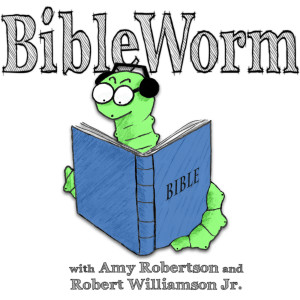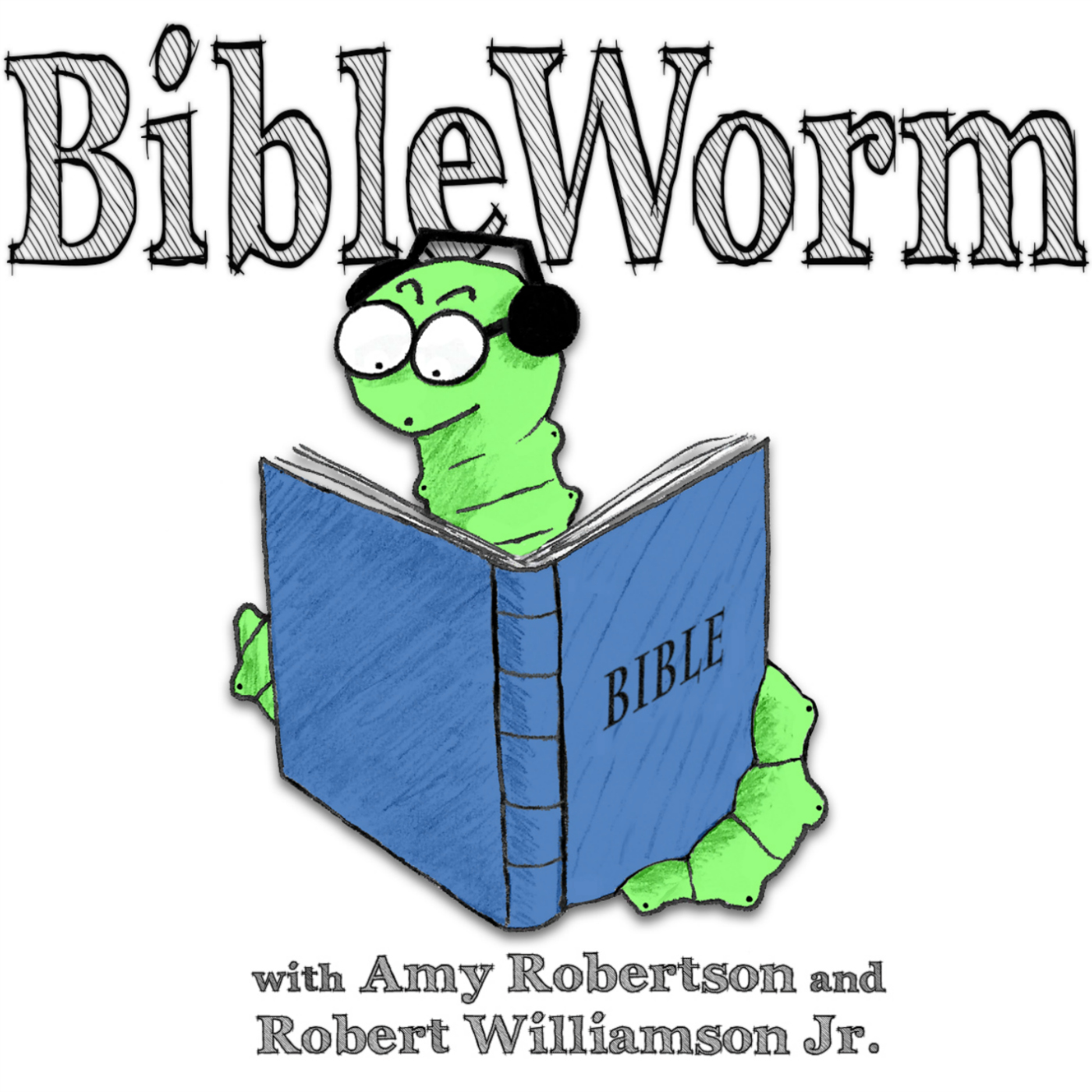Episodes

4 days ago
4 days ago
This week we’re reading Peter’s denial of Jesus as told in John 18:12-27. In what may be one of the most challenging discussions we’ve ever had, we discuss the moral injury that accrues, for Peter and for ourselves, when we encounter the gap between who we thought we were and who we turn out to be in life’s most challenging moments. We think about the incremental decisions that lead Peter to denying both Jesus and his own true self, the well-meaning denials that seem to start out innocently enough but build until Peter has rejected Jesus altogether. We notice that when the rooster crows in John’s version of this story, Peter doesn’t even notice, so little has he even realized what he has done. When the rooster crows for us, we wonder, what will we notice?

Sunday Feb 22, 2026
Episode 729 Unless I Wash You (John 13:1-17)
Sunday Feb 22, 2026
Sunday Feb 22, 2026
Today we are reading John 13:1-17, the story of Jesus washing the feet of his disciples as they head into the day before Passover. The story is just steeped in relationship – Jesus's relationship to God as he prepares to return to God, and Jesus’s deep connection to the people who are here with him on earth. How do these things fit together? Why does Jesus’s awareness of the power he derives from his relationship to God cause him to disrobe and don a towel and wash the feet of his students? Is this about cleansing, or hospitality? How can it prepare them for what is to come?

Sunday Feb 15, 2026
Episode 728 The Threat of Life (John 11:1-53)
Sunday Feb 15, 2026
Sunday Feb 15, 2026
This week we’re reading the story of the raising of Lazarus as told in John 11:1-53. We think about the disciples, so keenly aware of the threat to Jesus’s life but willing to follow him anyway, living in the light for as long as there is light to live in. And we ponder Mary’s words that bring Jesus to tears, as she invites him to experience the realities of human death and sorrow, saying to him what he has said to so many—“Come and see.” And we notice the threat that life brings to the Empire, as immediately after Lazarus walks out of the tomb the elites begin plotting to kill Jesus for the sake of the nation. A rich text in troubled times.

Wednesday Feb 11, 2026
Episode 727 ASH WEDNESDAY SPECIAL EPISODE The Good Shepherd (John 10:1-18)
Wednesday Feb 11, 2026
Wednesday Feb 11, 2026
For our Ash Wednesday episode, we are reading John 10:1-18 and, I’m not going to lie, wishing we had a lot more experience with sheep herding and sheep folds. We wonder – who are these robbers and thieves climbing over the fence, and what kind of fence is this if robbers and thieves can just skip the gate entirely? What difference does it make that the shepherd walks out ahead of the flock, where he can lead and guide, but can’t really keep an eye on the sheep or attune to the surrounding dangers in the same way? What does Jesus mean when he refers to his *own* sheep – might there be sheep in the fold who are not his own? And after talking up all this trust and care and deep connection between the shepherd and his own sheep – whaddya mean the shepherd has other flocks too? It seems like this intimacy is not the gatekeeping kind.

Sunday Feb 08, 2026
Episode 726 Blind from Birth (John 9:1-41)
Sunday Feb 08, 2026
Sunday Feb 08, 2026
This week we’re reading the rich and challenging story of Jesus healing a man blind from birth, as told in John 9:1-41. The story begins by rejecting the common theology that suffering is a result of sin, insisting instead that this man coming to see is to be a revelation of the glory of God. Yet by the end of the story, we discover not only that this blind man has recovered his sight but also that the establishment religious leaders, who have thought themselves sighted, have in fact been blind all along. We reflect on the importance of telling one’s own truth clearly and of not reducing it to what is acceptable, whether theologically or politically. And we wrestle with the tendency of establishment people, in this text and in our own world, to expel people from our communities rather than listen to what their experiences could teach us. Those who refuse to see will indeed remain blind, but if we open our eyes, it is yet still possible to live in the light.

Sunday Feb 01, 2026
Episode 725 Miraculous Healthcare (John 4:46-54 and 5:1-18)
Sunday Feb 01, 2026
Sunday Feb 01, 2026
Our reading today is John 4:46-54 and 5:1-18 – the first healing stories we’ll read this season. And in this time when access to healthcare seems like its own miracle, stories that really struck us both. We remember the signs and wonders of Exodus, and their importance in building a lasting faith for the people, as we see Jesus offer signs and wonders of a different kind. We imagine what it would be to be so close to that pool of water that held within it a promise of dignity, or maybe even healing – and slowly realize over weeks and years that it will never be your turn to immerse. When Jesus heals these men, can we imagine he is offering something more than a broken fever, more than legs with the strength to walk? And can we imagine a way of healing, in this story and in our time, that’s not dependent on the established systems?

Sunday Jan 25, 2026
Episode 724 The Woman at the Well (John 4:1-42)
Sunday Jan 25, 2026
Sunday Jan 25, 2026
This week we’re reading the story of Jesus and the Samaritan woman at the well, as told in John 4:1-42. Here we find a story about a Jewish man and a Samaritan woman, from communities that have hated each other for centuries, finding common ground at the well of their mutual ancestor, Jacob. We notice that their interaction starts out tensely, shifting only when Jesus takes the time to see her deeply and acknowledge the pain she carries with her. We marvel at her insight, to recognize Jesus as the messiah when others have struggled to understand. And we reflect on her courage to share her experience with her entire village, inviting them to come and see Jesus even though she hasn’t fully figured things out for herself yet. What if we take this woman as a model for faith, we wonder, who calls us to engage across difference, inviting others to share our experience of Jesus?

Sunday Jan 18, 2026
Episode 723 God So Loved the World (John 3:1-21)
Sunday Jan 18, 2026
Sunday Jan 18, 2026
Our reading today is John 3:1-21 ... and it contains within it what is probably the most famous of all biblical verses, John 3:16–for God so loved the world. We find the verse in a story about a man who is drawn to Jesus and seeks him out, but struggles mightily-almost comically-to understand what he’s saying.How do the story and the verse each help us to read the other more fully? What do love, and truth telling, and eternal life have to do with one another? And what does any of this have to do with that story about Moses and the snakes?

Sunday Jan 11, 2026
Episode 722 Disrupting the Business of Worship (John 2:13-25)
Sunday Jan 11, 2026
Sunday Jan 11, 2026
This week we’re reading the story of Jesus disrupting Temple commerce during the festival of Passover as told in John 2:13-25. Unlike the other Gospels, which place this story at the end of Jesus’s ministry, John places it at the very beginning, just after Jesus’ miracle of turning water into wine in Cana. If that story had led us to think that Jesus was going to be all “yes,” this story puts us squarely into the “no.” In this case, Jesus’s “no’ is to the intersection of worship and business, as Jesus declares, “Do not make my Father’s house a house of commerce.” But what does it mean that the temple—and by extension our own churches and synagogues—shouldn’t conduct business related to worship? Sure, we see how having a church gift shop might be a bit over the top, but travelers need to exchange money, pilgrims need to buy animals for sacrifice, and pastors need to feed their families. Perhaps, we think, Jesus is holding out an idealized view of a future in which money is no longer needed for worship. But here and now, in a world in which money is in fact necessary, perhaps we can at least try to minimize business of worship, making sure our finances support true worship rather than designing our worship to bring in more business.

Sunday Jan 04, 2026
Episode 721 Water into Wine (John 2:1-11)
Sunday Jan 04, 2026
Sunday Jan 04, 2026
This week we’re reading John 2:1-11, the story of Jesus turning water into wine at a wedding -his first miraculous sign in the Gospel of John, and an unusual place to start. Jesus himself objects to his mother’s subtle suggestion that he ought to take action when she sees the wine has run out. I mean, come on - the stakes here are not that high. So the party-goers will be disappointed, so the host will be embarrassed. So? Doesn’t Jesus have bigger fish to fry? But in choosing to act, he brings a hospitality beyond our wildest imagination into the story. Now, if Jesus can overcome his hesitation to act, if he’s willing to adjust the actual cosmic clock of the kingdom of heaven in the interest of hospitality... what exactly is it that holds us back from generosity? and what we might be able to overcome?

